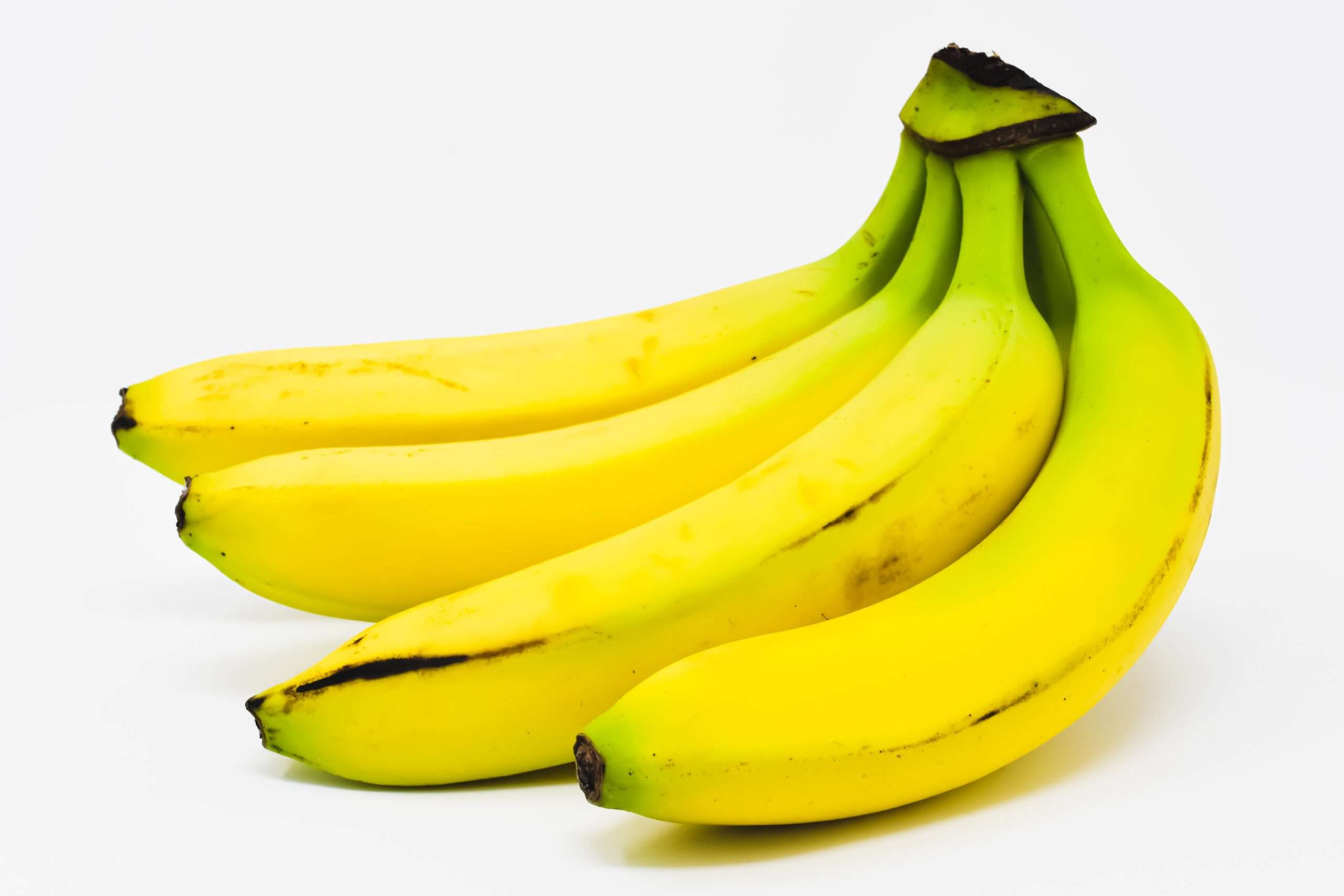What is a banana?
Bananas are popular.
On average, we each eat 10 kg of bananas a year (about 100 bananas).
There are hundreds of edible varieties that fall into two distinct species: bananas and plantains. Bananas have a distinct shape and firm but creamy flesh inside a thick, inedible skin.
Although people think of bananas as having a yellow skin, their colour changes from green (underripe) to yellow (ripe) to brown (overripe).
Bananas grow in clusters of 50 to 150 units, with individual bananas grouped in clusters called « hands » of 10 to 20 units at a time. The most popular type of banana is the large, yellow, smooth-skinned sweet banana variety.
This Musa sapienta banana varies in size and color and is usually eaten raw.
The larger, green bananas are called plantains.
Plantains are prepared in the same way as vegetables, usually baked or fried.
Avantages nutritionnels :
A portion of 80g (a small banana) provides :
- 65 Kcal / 278 KJ
- 1.0 g of protein
- 0.1 g fat
- 16.2 g of carbohydrates
- 1.1g Fibre
- 264mg Potassium
1.Promotes intestinal health
Bananas are loaded with valuable micronutrients, including potassium, which is one of the body’s most important electrolytes.
Potassium helps regulate heart function as well as fluid balance, which is a key factor in managing blood pressure.
The effectiveness of potassium-rich foods, such as bananas, in lowering blood pressure and protecting against heart disease and stroke is well accepted and supported by considerable scientific evidence.
2.May promote heart health
Bananas are loaded with valuable micronutrients, including potassium, which is one of the body’s most important electrolytes.
Potassium helps regulate heart function as well as fluid balance, which is a key factor in managing blood pressure.
The effectiveness of potassium-rich foods, such as bananas, in lowering blood pressure and protecting against heart disease and stroke is well accepted and supported by considerable scientific evidence.
3.May help manage heartburn
Unripe bananas help neutralize stomach acid and a plant compound they contain, leucocyanidin, appears to promote thickening of the stomach lining.
This means that bananas, while unripe, can be a useful food supplement for heartburn sufferers.
4.An energy booster
Because they have a low water content, bananas are generally higher in calories and sugar than other fruits.
They contain sugar in the form of sucrose, fructose and glucose, as well as fibre, which allows them to provide an instant and lasting energy boost.
Rich in potassium, it promotes muscle contraction during exercise and may reduce the risk of cramps. As such, bananas are a valuable addition before and during prolonged forms of intense exercise.
5.Can support mood
Bananas contain tryptophan, an amino acid that the body converts into serotonin, a feel-good brain chemical.
Serotonin is known to promote relaxation, improve mood, reduce anxiety and generally make you happier.
However, it is very difficult to increase blood levels of tryptophan through diet alone, and although animal studies suggest a possible link between banana consumption and improvements in anxiety and depression, it is likely that this link is more related to the antioxidant content of bananas than to their contribution of tryptophan.
Are bananas safe for everyone?
Bananas are not for everyone. For example, they can trigger migraines in people who are sensitive to them. Bananas can trigger an allergic reaction in some people.
Allergy symptoms normally develop within minutes, and you should consult your GP if you have an adverse reaction.
However, if this reaction develops into a severe reaction, called anaphylaxis, it is a medical emergency and you should call an ambulance immediately. Some medications work by increasing the level of potassium in the blood. If you are prescribed medication of this nature, you should be careful about eating foods high in potassium, such as bananas.

